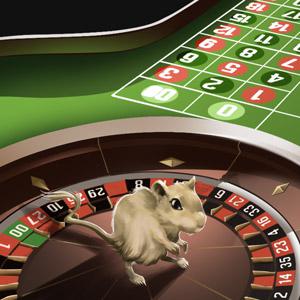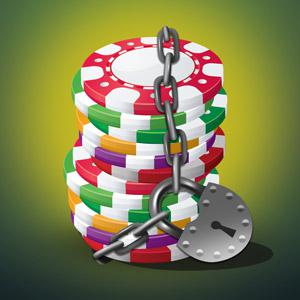If you’ve ever stepped into your local book makers, or put down a few bob on the Grand National, you’ll probably be familiar with the term “sportsbook.” They’re extremely common to find in a lot of brick-and-mortar casinos and racetracks, but also when it comes down to football games, basketball, boxing, and other major sporting events such as the Olympics.
But how do they actually work when it comes to odds, probabilities, pay outs and the bookies own cut of the bets? In this article, we’ll take a close look at the history of the sportsbook and how it evolved. We also look at the places and countries allowed to operate sportsbooks, and how they play such a key role in the revenue they bring for gambling establishments.
The history of the sportsbook
Although the sportsbook origins aren’t concrete, many believe that the act of sports betting actually dates back to ancient times, when people placed wagers on the outcome and result of an event. Rome is a prime example of this, and is one of the oldest civilizations notorious for gambling during the reign of Julius Caesar.
Bets would usually be placed on chariot races or the circus, and paid out according to the outcome. There were of course, concerns that gambling posed a direct correlation with organized crime in the city. But the additional tax revenue it generated improved the nation’s public services, so many things that would have been considered a felony at the time, were often overlooked.
Fast-forward to a few centuries later, during an age where online casinos gained much popularity throughout Europe and Western culture – the rules around sports books became more regulated, as did the ways that you could place wagers. In 1949, bookmakers in the state of Nevada (which is where the majority of sportsbooks are located today) were permitted to take bets on professional sporting activities and horse racing, subject to a 10% tax on every bet. At the time, these bookmakers (known as “Turf Clubs” back then) were separate from the casinos but were still making a steady profit that kept them head-above the gambling industry. Come 1974, this tax was reduced to just 2%. Famous mobster and Stardust casino owner Frank Rosenthal managed to convince legislators to allow sportsbooks within casinos. This lead to the closure of many of these smaller Turf Clubs.
How sportsbooks work in today’s era
These days, you can practically bet on any kind of sporting event. And because much of it is handled online, it’s even easier to win ludicrous amounts of money. But you could quickly lose it at the same time. The sports betting industry is now a 24/7 business which is estimated to bring in a “handle” of approximately $200 billion per annum according to experts. This doesn’t count the illegal sports betting activities conducted in many parts of the US.
Initially, sportsbooks were handled by specialist “traders,” who would determine the math, algorithms and statistical automations behind sports betting probabilities and payouts. These days, bookies set their own rules in place, including odds, what bets they accept, and how they pay out the winners.
With everything now automated, sports betting has become a highly competitive industry. It requires operators to think outside the box when it comes to enticing gamblers. Just having the facility to take bets is not enough. For many it’s now about the overall user experience, whether it be through a mobile app, a free bet offering, or an attractive and familiar website platform in which to find their favorite games and events. All of these things make up a fundamental process in the decision-making for many gamblers choosing to bet on sports and other games these days.
Countries where sportsbooks are legal
In many U.S states, sports betting is still an illegal form of gambling. For the ones where it is permitted – the legislation around it is rather complex. This is particularly true when it comes to online sports betting. The Wire Act of 1961 specifically states that book makers and organizations are not authorized to accept wagers for sports betting. However, there is nothing stipulated in the text that prevents individuals from placing bets, which baffled both parties for many years.
Currently, the only states exempt from this act are Nevada, Delaware, Montana and Oregon, but again the scope in which this branches out too is limiting for these states. (Delaware for example, are only able to accept bets for parlays on NFL games.)
New Jersey would have made it as an addition to the exemption list last year. That’s when the Supreme Courts excluded the state from the law. They did this in order for them to implement their own sports betting regulations inside Atlantic City casino establishments. They only had one year to do this, and unfortunately weren’t quick enough to act on the opportunity.
Canada and UK sportsbooks
In Canada, sports betting is legal but very limited. And they can only accept certain wagers on a small selection of sporting events. Citizens are still authorized to gamble for sports online providing they use Canadian betting sites.
In the UK, practically all online gambling and sports betting is legal and fully regulated. Australia is also permitted to offer most forms of gambling. This includes sports and pari-mutuel betting, providing they use an official bookmaker within the country.
Sports betting in Europe is a bit more of a grey area. All 50 countries in the union are responsible for their own rules and regulations for sports betting, and each one differs in some way. As long as the entities and bookmakers providing the option to place wagers are fully-licensed, all forms of gambling in Europe are generally seen as ok.
Modern day sportsbook terminology
You might understand sports betting lingo already. But if you’re not, it pays to know what these operators are talking about. That way, you will avoid any misunderstandings or slip ups with your bets. Below is a list of terms you’re commonly likely to see or hear when spending time in a bookmakers.
Across the board – A method used to wager (usually on a horse) to either win, place or show
Against the Spread – Refers to the result of an event that takes into account point spreading.
Bookie – Someone who accepts bets on the outcome of sporting events
Chalk – The favored team, person, or animal set to win
Circled Game – When limits and options are either lowered or restricted – mainly due to an injury of some sort
Sportsbook terms D – H
Dead Heat – When 2 or more horses finish as a draw
Double Action – An “if bet” which is processed once the precedent bet wins, cancels or ties.
Exotic – Any bet other than a straight or parley (also known as a proposition or “prop”)
Exposure – The maximum amount of money a sportsbook is set to lose during a game
First Half Bet – A bet placed on the first half of the game only
Grand Salami – Total of goals scored on all hockey games of the day
Half Time Bet – Bet placed on the second half of a game
Handicapper – A person who studies the rates and algorithms or sporting events
Handle – The total amount of money wagered on an event or group of events
Sportsbook terms J – P
Juice – The commission earned by the book makers
Layoff – Money bet by a house in line with another bookmaker to reduce liability
Limit – The maximum amount a bookie will allow you to wager before they change the odds or points of a game
Lines – Another term for “odds”
Middle – To win on both sides of a sporting event or contest
Move the Line – An additional payment made by the player to receive half a point more on a point spread game
Off the Board – No action on a game being offered by the bookmaker at the current time
Outlaw Line – An overnight line which only a minority of betters are allowed to wager on
Over/Under – Bets place on whether a combined total of points or goals scored by the 2 teams will exceed or be less than a specified amount.
Parlay – Bets placed on 2 or more teams where the initial stakes and winnings are reinvested on the next wager. In order to win on this bet. All selections must be correct.
Proposition Bet – A special wager offered by bookies on various unique topics including sporting events, politics or trial outcomes
Sportsbook terms R – V
Run Down – Specifics of the details surrounding a specific event, sports, date or time etc.
Single Action – An “if bet” which is only processed if the precedent bet wins
Square – Sports betting novice
Steam – When a line begins to move rapidly, drawing in a mass of bets
Straight bet – Wager on the first team, person or animal
Totals bet – A “prop bet” which speculates the total score for both teams during a game as predicted by the bookies themselves
Taking the price – Bets placed on the underdog and accepting the monetary odds
Teaser – A bet on two or more teams where the line for each is adjusted in the favor of the player/bettor
Tout – An expert in sports betting who sells their knowledge and expertise
Vigorish – The bookmaker’s commission on a losing bet
How to place a bet on a sportsbook
Placing a wager on a sporting event is incredibly easy! It’s the results and outcomes that come afterwards which can make the decision process a bit trickier. Firstly, you should choose the game or event you would like to place a bet on. Bookies will usually have a list of up and coming events available which you can select from.
Once you’ve settled on an event, it’s time to select the most likely outcomes and decide how much money you want to put down on it. You should see all of this information on your betting slip. Find it somewhere near the top screen under “balance” if making bets online. From here, you can select a risk amount for a single bet, or add more options to your slip, and parlay them all together.
Live vs online sportsbooks
You may find there are slight differences between placing bets inside a live bookmakers, as opposed to online. That said, the layout of every sportsbook will always be the same, and work with exactly the same formulas. Look for a list of all available sporting events for betting left to right of the screen. This information will also carry the odds for individual games and events in the middle of the screen. Your bet slip will sit at the top right hand corner.
As you enter the amount for your bet, the slip will display (in real-time) how much you can expect as a payout if yours pulls through as a win. Although it pays to calculate odds and payouts in sports betting, many books these days will actually offer to do this for you. For example, the “win amount” section will calculate how much you would need to wager in order to win a certain amount of money. Handy if you’re looking to make some pretty bold and risky bets! Next, confirm your bet by selecting “place bet”. Make sure you’ve filled out the slip correctly as it cannot be altered or cancelled after this time. From there it’s a case of awaiting the winning results!
Downloads and software cautions

If you’re new to sports betting, it’s certainly worth noting the following. Under no circumstances should you ever have to download or install software to use a sportsbook or make bets. As long as you have a safe and secure internet connection with cookies enabled, you will be able to place wagers with no issues at all in terms of signing up and depositing funds etc. Some sites you may find require you to install flash or other browser add-ons/extensions to enable you to view the platform. But these will always be free and completely legitimate software.
It’s also worth noting that mobile apps are available for certain sportsbooks. These can make the entire process much easier and more convenient too! Many sports betting apps will be available through the Google Play store or Apple store. However, some bookies have the option to download the app from their platform directly – which is always the best option. The most useful thing about placing bets in this way is the fact that many sites offer special, exclusive bonuses just for gambling through their mobile app. Some even offer free bets. So it’s definitely worth utilizing these kind of promotions as much as possible to ensure you are getting the most bang for your buck!
Analyzing sports betting odds and probabilities
When it comes to odds, it’s important to know that there are different types according to the country in which your sportsbook operates. The three main formats are: Decimal, American and Fractional. But there will always be an option to switch to your preferred format when placing bets at any legitimate bookies or online platform. Let’s look at the three different formats in more detail.
Decimal
This is the easiest format for calculating your winning potential. In order to work out possible payouts, you first need to multiply the risk against the decimal number. For example, if you were to wager $100 on a bet with odds of 1.5, you will get a return of $150 if you win (100 x 1.5). This incorporates the original stake with the $50 winnings. So in theory, the larger the number, the bigger payout potential.
American
Also referred to as “money line” odds – this format places every bet relative to $100. If the result is a negative number i.e. -125, that’s how much money you would need to bet in order to win $100. If the number is positive however, that same bet would come out as $250.
Fraction
Last but no means least, we have “fractional” odds. These are not to be confused with actual fractions, as these are based on ratios. Say for example, a team was listed with odds of 1 /2. That doesn’t mean the team has a 50/50 chance of winning, but actually they have a 66% chance. The best way to get your head around this one, is by looking at fractional odds as the number on the right will be the amount you wager, and the number on the left is what will be paid as winning stakes. So for every 1 /2 odds on every $2 wager, you would win $1. For 7/2 odds, every $1 wager would payout $3.50. The best one is always the team with the smaller number.
How sportsbooks make their own rules
As we mentioned earlier, these days’ sportsbooks do in fact have the freedom and maneuverability to set their own odds. For gamblers new to sports betting and trying to understand how it works, a good example of this would be: If two teams were to have the same odds in a game, you would think both teams have an equal chance of winning, and therefore, payouts would be the same for both right? On the contrary, this isn’t the case. We’ll explain why and discuss the various types of “odds” you can expect to see when placing sports wagers below.
True Odds
In an even match, both teams will either be at -105 or -110 (approximately 10/11 or 1.85), depending on the site’s format. Regardless, a bookie will never offer “true” odds because the outcome will ultimately lead to a one-for-one payout. This wouldn’t generate any profit for the sportsbook. Their way of combatting this is to take an extra cut of the percentage from all of the possible outcomes if they are greater than 100%. This is referred to in sportsbook terminology as “vig” or “vigorish”.
Shifting Odds
Shifting odds, also known as “shading the lines” to some. These types of odds mean a lot more money is being bet on heads as opposed to tails. This means the bookies themselves are actually at risk of losing money. So, if heads were to win, the book won’t have enough money from the opposing end to pay out the heads bets. If tails wins, the book will take a few punches but not to the extent they would for payouts on the heads bettors. This is why you’ll often find sportsbooks shortening the heads odds to -120. At the same time, they increase the odds for tails to +100 respectively. Ultimately these actions encourage gamblers to place their money on tails. That’s because it means more winning potential for them, and less of a risk and strain on the bookmakers.
Placing bets on a moving line
A common bet placing method for many, is to actually place a wager on the very last moment before the game or event begins. For example, a boxing match scheduled to begin at 6pm may start later. With the interference of adverts, commentary overviews, and other intervals, this will easily push the start time back a few minutes. Naturally, bookies will still accept bets up until the point of the first punch. This applies to all sports. And in some rare cases you can even place bets after start/kick-off/show time which is known as “live betting.” In hindsight, bets such as this will only be possible in the event of an injured player and their status is “yet-to-be-confirmed.”
No Action
No action is a standard bet. But this is very important to know should you ever find this happens to you when placing a bet. This is something you can expect to see on a sportsbook which is known as “no action”. Which to put simply, means the bookie has decided that the bets never happened in the first place. All wagers are returned accordingly. This is usually for games cancelled or postponed due to severe weather. It can also occur when a player withdraws or forfeits a tournament (more common in golf). Most sportsbooks will pull this stunt at their own discretion and sometimes handle the outcomes differently. But you should always expect to have your wager rightfully returned in the event of such instances.
There are several other different types of bets available too. But many are relative to the nature of the sport, such as NFL games and Golf etc. Our best advice is to always to do your research beforehand. That way you can see which options are available and suit you the most when placing sports wagers. Also, make sure you thoroughly read up on the rules and regulations for the country you are looking to gamble from too.









